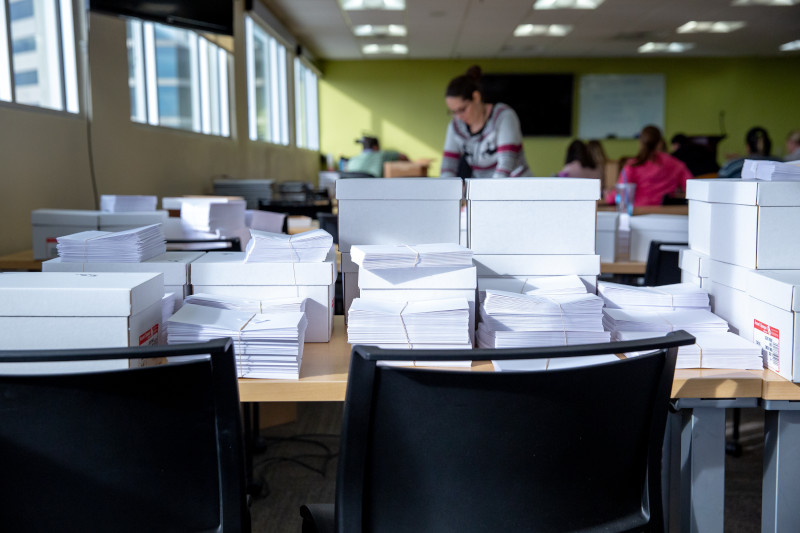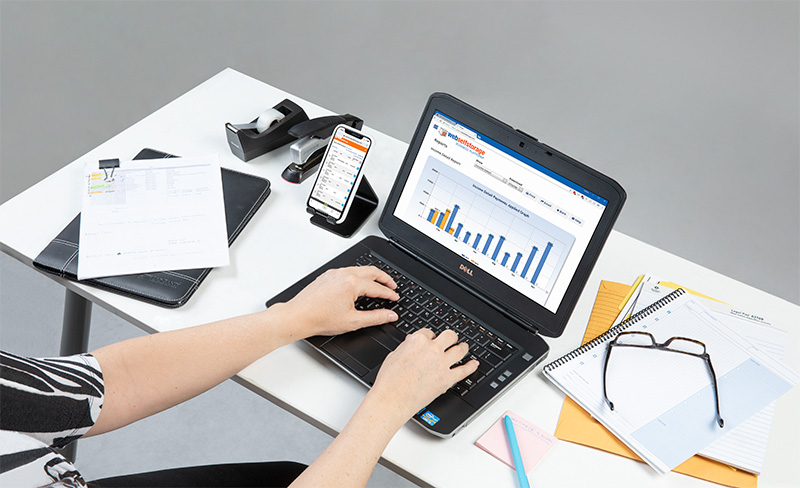The home office tends to be the “junk drawer” of the house. If you don’t keep an eye on it, you’ll have a collection of clutter that could scare someone on the TV show “Hoarders.” But follow the simple guidelines below and you’ll have your home office whipped into shape in no time.
 Office Organizers. Desk organizers and file stackers are your friends. And, they’ve come a long way from the boring plastic containers that we’re all used to. Go to Target, Walmart, Office Max or Staples and you’ll be surprised to find that office organizers are a great way to accessorize and decorate your home office.
Office Organizers. Desk organizers and file stackers are your friends. And, they’ve come a long way from the boring plastic containers that we’re all used to. Go to Target, Walmart, Office Max or Staples and you’ll be surprised to find that office organizers are a great way to accessorize and decorate your home office.
You’ll want to get a file organizer and get an organized system in place. For instance, you could get a three-shelf stacker and use the top shelf for an “inbox” of items to be processed. Categorize documents and correspondence as you receive it. The middle shelf could serve as a “waiting” file—for documents that need action, but are dependent on something else. And the bottom shelf could be for “open projects” and other items that you are working on. Everything else should be filed away or shredded.
If you don’t have a file system, consider getting an accordion file or file box for your important documents. But you may be wondering what you need to keep and what you can safely throw away. That brings us to our next tip.
Important Documents. The Zebra has a great guideline for what important documents you should keep and for how long. Check out their article: www.thezebra.com
 After you’ve sifted through your papers, you’ll probably have a large pile to throw away. But you’ll want to shred or burn anything with your name, social security number, or account numbers on it. You don’t want to become the victim of identity theft.
After you’ve sifted through your papers, you’ll probably have a large pile to throw away. But you’ll want to shred or burn anything with your name, social security number, or account numbers on it. You don’t want to become the victim of identity theft.
Going Paperless: If you have limited space for file organizers or just prefer to have everything stored digitally, consider a digital filing system. They are more expensive then traditional file organizers but they allow you to transform your paper clutter into digital information that’s easy to find, use, and share. Many digital file organizers allow you to scan documents, receipts and even business cards!
Electronic Backups. If you have never backed up your computer, now is the time to start. You’ll want to purchase an external hard drive and back up your electronic files. Then, most importantly, you’ll want to disconnect the hard drive and store it away after your backup is complete. If lightning strikes, and your computer or hard drive is plugged into the wall, the device and all of your files will be fried.
Another option is to subscribe to an online “cloud” backup service. There are a bunch of them out there, so you’ll want to do your research. This may cost you more in the long run than purchasing an external hard drive, but it eliminates you having to remember to manually back up your computer every month.
Fire-safe Container. In case disaster strikes your home, you’ll want to make sure your most important documents are in a fire-safe, waterproof container. Here is a short list of some of the documents you might want to keep safe from disaster.
- Birth certificates
- Passports
- Social Security cards
- Advance directives/Wills/Life insurance
- Power of attorney
- Marriage licenses/divorce decrees
- Homeowner’s/Renters insurance inventory
- External hard drive with your computer backups
As with most things in your home, if you haven’t needed it in over a year, you probably don’t need it at all. Someone else could benefit from your donation. And you’ll feel better without the clutter weighing you down.
Stay tuned for next week’s “Summer Storage & Organization” post. Get ready to tackle your bathrooms!



